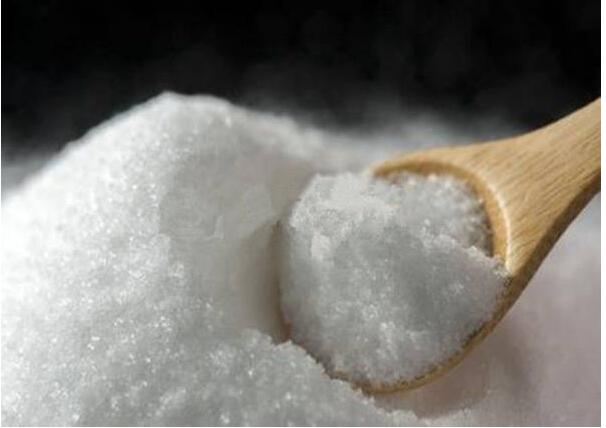Advertisements



CAS 475207-59-1 Pharmaceutical Raw Materials Anticancer Sorafenib Tosylate / Nexavar
| Price: | US$ 1 / Gram |
|---|---|
| Minimum Order: | 10g |
| Payment Terms: | TT, Western Union, moneygram |
| Port of Export: | shanghai |
Product Details
| Model No.: | Brand Name: | DMK |
|---|
| Certification: | SGS, ISO9001 |
|---|---|
| Specification: |
Certification : ISO9001 Place of Origin : China MOQ : 10g Price : negative Payment Terms : T/T, Western Union, MoneyGram, Supply Ability : 10000 kg per month Delivery Time : 2-3 working days Packaging Details : 1kg/Aluminum foil bag Synonyms : Sorafenib (Nexavar) CAS : 475207-59-1 MW : 637.03 Purity : 99% Standard : USP MF : C21H16ClF3N4O3.C7H8SO3 |
Packaging & Delivery
| Packaging: | aluminum foil |
|---|---|
| Delivery/Lead Time: | 3-7 working days |
| Production Capacity: | 5000kg/M |
Product Description
Description Toluenesulfonic Sorafenib is a kind of novel multi-targeted anticancer drug and was first successfully developed by the German pharmaceutical company Bayer. It can simultaneously take effect on both the tumor cell and tumor vasculature. It has a dual anti-tumor effect: not only by blocking the RAF/MEK/ERK-mediated cell signaling pathway for direct inhibition of tumor cell proliferation, but also by inhibiting VEGF and platelet-derived growth factor (PDGF) receptor for blocking tumor angiogenesis and indirectly inhibition of the growth of tumor cells.
It has shown a wide range of anti-tumor activity in preclinical animal studies. In phase III randomized clinical studies for treating patients with advanced kidney cancer in Europe and the United States, 903 cases of patients who had gotten failure upon receiving a systemic therapy (chemotherapy or immune) before for advanced kidney cancer randomly divided into two groups, one group received treatment of toluenesulfonic Sorafenib (referred Sorafenib), the other group received a placebo. 222 cases of deaths have occurred upon the interim analysis with the results showing that the objective effectiveness rate of two groups was 10% and 2%, respectively, and with 74% and 53% of patients, respectively, having their tumor remained stable.
The progression-free survival period of sorafenib group is 2-fold as high as the placebo group (5.8 months vs 2.8 months with hazard ratio being 0.51). Compared with placebo treatment, the sorafenib has significantly improved the quality of life of patients. Sorafenib group facilitated a longer survival period than the placebo group with the risk ratio being 0.72, but this difference did not reach statistical significance. Owing to that this was only the result of the interim analysis; therefore, it is necessary to perform the final comparison analysis upon the final analysis of the test.
Sorafenib treatment has well tolerance with the main adverse effects including controllable diarrhea, rash, fatigue, hand-foot syndrome, hypertension, hair loss, nausea/vomiting and loss of appetite.
Application
At the current time sorafenib is indicated as a treatment for advanced renal cell carcinoma (RCC), unresectable hepatocellular carcinomas (HCC) and thyroid cancer.
Kidney cancer
An article in The New England Journal of Medicine, published January 2007, showed that, compared with placebo, treatment with sorafenib prolongs progression-free survival in patients with advanced clear cell renal cell carcinoma in whom previous therapy has failed. The median progression-free survival was 5.5 months in the sorafenib group and 2.8 months in the placebo group (hazard ratio for disease progression in the sorafenib group, 0.44; 95% confidence interval [CI], 0.35 to 0.55; P<0.01). A few reports described patients with stage IV renal cell carcinomas, metastasized to the brain, that were successfully treated with a multimodal approach including neurosurgical, radiation, and sorafenib. This is one of two TGA-labelled indications for sorafenib, although it is not listed on the British Pharmaceutical Benefits Scheme for this indication.
Liver cancerAt ASCO 2007, results from the SHARP trial were presented, which showed efficacy of sorafenib in hepatocellular carcinoma. The primary endpoint was median overall survival, which showed a 44% improvement in patients who received sorafenib compared to placebo (hazard ratio 0.69; 95% CI, 0.55 to 0.87; p=0.0001). Both median survival and time to progression showed 3-month improvements. There was no difference in quality of life measures, possibly attributable to toxicity of sorafenib or symptoms related to underlying progression of liver disease. Of note, this trial only included patients with Child-Pugh Class A (i.e. mildest) cirrhosis. The results of the study appear in the July 24, 2008, edition of The New England Journal of Medicine. Because of this trial Sorafenib obtained FDA approval for the treatment of advanced hepatocellular carcinoma in November 2007.
Desmoid tumors
A phase 3 clinical trial is under way testing the effectiveness of Sorafenib to treat desmoid tumors (also known as aggressive fibromatosis), after positive results in the first two trial stages. Dosage is typically half of that applied for malignant cancers (400 mg vs 800 mg). NCI are sponsoring this trial.
Function:
The incidence of liver cancer is approximately twenty over one hundred thousand. Owing to insignificance of the early symptoms of early liver cancer, there are already nearly 80% of patents existing at their advanced stage upon seek medication. There are around half of the cases of the world's liver cancer occurring in China while among all the primary factors in China causing liver cancer, hepatitis B is in the first row. This causative factor of liver cancer in China is also quite different from that in Europe and the United States.
Researchers from several countries have published reports on the new American "New England Journal of Medicine," in which they selected 602 patients with advanced liver cancer from the United States, Europe and Australia and other countries and performed related studies. None of these patients had ever received systemic therapy. The results have showed that compared with placebo, taking toluenesulfonic sorafenib (Nexavar) could prolong the overall survival period of patients with advanced hepatocellular carcinoma or primary liver cancer by about 44% and delay the disease progression time by 73%.
The drug has been separately approved in the United States and Europe for the treatment of liver cancer.

|
SUPPLIER PROFILE
|
|||
|---|---|---|---|
| Company: | Wuhan Demeikai Biotechnology Co., Ltd | ||
| City/State | Wuhan, | Country: |
China 
|
| Business Type: | Export - Manufacturer / Trading Company | Established: | 2016 |
| Member Since: | 2017 | Contact Person | Sam Wang, Miguel Jones, Icemile Cheng |
SUPPLIER PROFILE
City/State/Country -
Wuhan,
China 

Business Type -
Export - Manufacturer / Trading Company
Established -
2016
Member Since -
2017
Contact Person -
Sam Wang, Miguel Jones, Icemile Cheng



